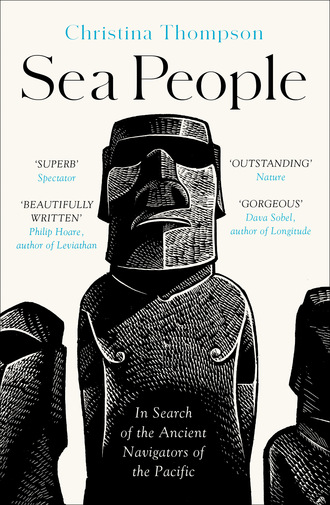
Полная версия
Sea People
Everything about Tahiti enchanted the elegant, erudite Bougainville: “The mildness of the climate, the beauty of the scenery, the fertility of the soil everywhere watered by rivers and cascades.” “I thought,” he wrote, “I was transported into the garden of Eden.” He saw the landscape in terms of the picturesque—“nature in that beautiful disorder which it was never in the power of art to imitate”—and the inhabitants as children of nature. The islanders, he wrote, “seemed to live in an enviable happiness,” and the worst consequence—for the French—of shipwreck in these parts “would have been to pass the remainder of our days on an isle adorned with all the gifts of nature, and to exchange the sweets of the mother-country, for a peaceable life, exempted from cares.” Writing for an audience of cosmopolitan Parisians, Bougainville cast the Polynesian inhabitants of Tahiti as innocent sensualists. Wallis had taken possession of Tahiti on behalf of the British, dutifully, if unimaginatively, naming it King George the Third’s Island. In the first shimmer of what would come to be known as le mirage tahitien—that constellation of images of indolence and hedonism that still cluster about Polynesia today—Bougainville rechristened the island New Cythera, after the place at which the goddess Aphrodite had risen from the sea.
Конец ознакомительного фрагмента.
Текст предоставлен ООО «ЛитРес».
Прочитайте эту книгу целиком, купив полную легальную версию на ЛитРес.
Безопасно оплатить книгу можно банковской картой Visa, MasterCard, Maestro, со счета мобильного телефона, с платежного терминала, в салоне МТС или Связной, через PayPal, WebMoney, Яндекс.Деньги, QIWI Кошелек, бонусными картами или другим удобным Вам способом.

